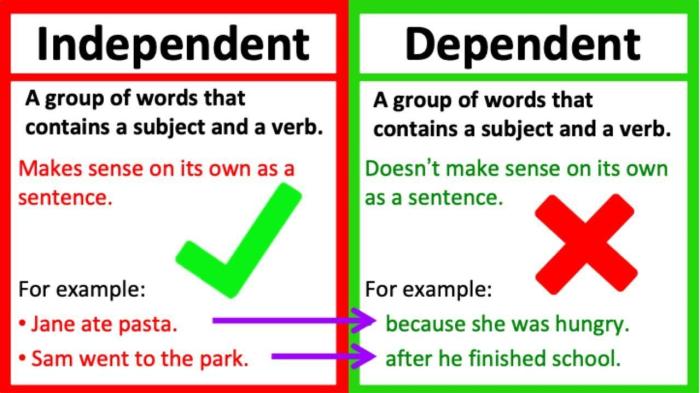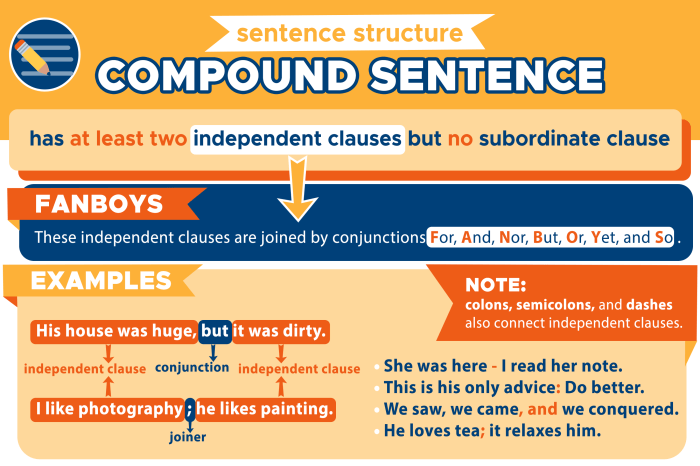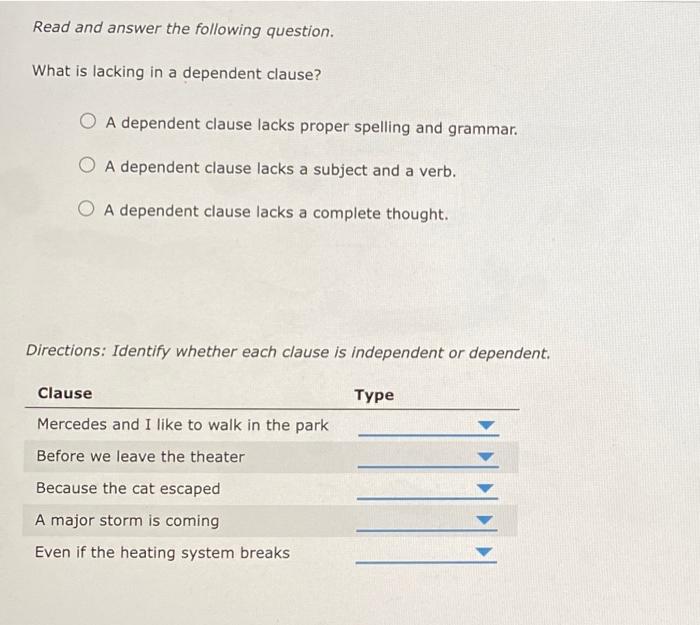Which sentences contain dependent clauses select two options – Which sentences contain dependent clauses? Select two options sets the stage for this enthralling narrative, offering readers a glimpse into a story that is rich in detail and brimming with originality from the outset.
This comprehensive guide delves into the intricacies of dependent clauses, providing a thorough understanding of their definition, types, and functions within sentences. Through engaging examples and practical exercises, readers will gain a mastery of identifying and utilizing dependent clauses effectively in their writing.
Dependent Clauses: Which Sentences Contain Dependent Clauses Select Two Options

Dependent clauses, also known as subordinate clauses, are groups of words that cannot stand alone as complete sentences. They rely on an independent clause, also known as a main clause, to make sense.
Dependent clauses typically begin with subordinating conjunctions, such as because, although, since, and while. These conjunctions signal that the clause is dependent and cannot stand alone.
Types of Dependent Clauses, Which sentences contain dependent clauses select two options
- Adverbial clauses: Express a relationship between the actions or events in the dependent and independent clauses. Examples include clauses of time ( when, while), place ( where), cause ( because, since), and purpose ( so that, in order to).
- Adjectival clauses: Modify nouns or pronouns in the independent clause. They are introduced by relative pronouns ( who, which, that) or relative adverbs ( where, when).
- Noun clauses: Function as nouns within the independent clause. They can be introduced by subordinating conjunctions like that, whether, or what.
User Queries
What is a dependent clause?
A dependent clause is a group of words that contains a subject and a verb but cannot stand alone as a complete sentence. It relies on an independent clause to make sense.
How can I identify a dependent clause?
Dependent clauses often begin with subordinating conjunctions such as because, although, if, and since. They also cannot stand alone as a complete thought.

